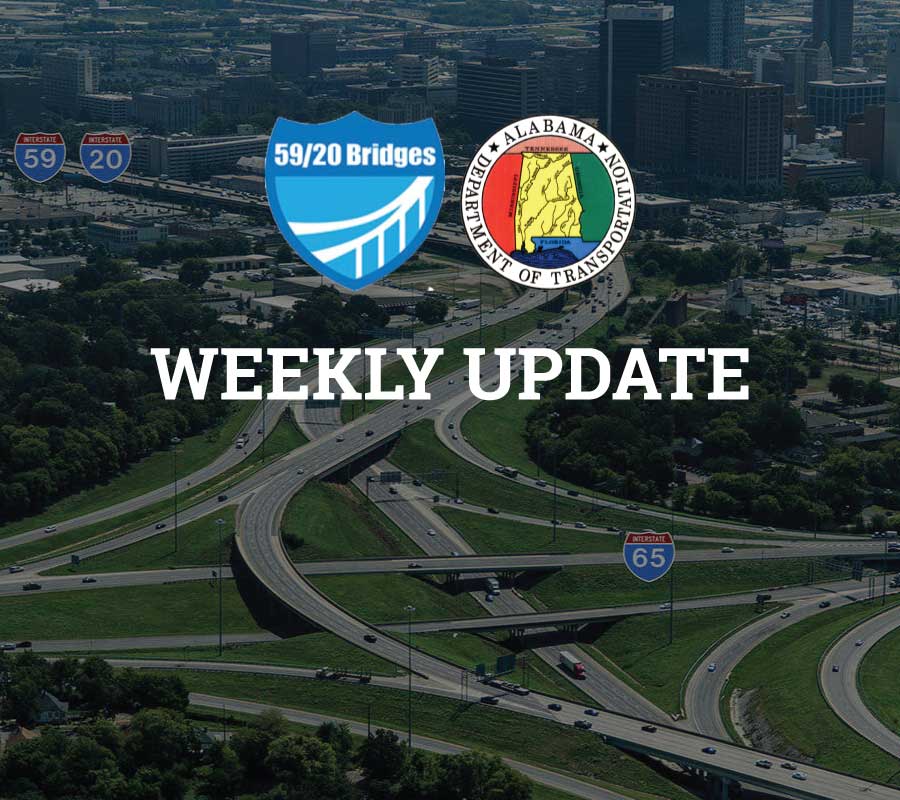1. Something had to be done.
We could not afford to wait before taking action, as portions of the roadway had literally began to fall apart. Designed in the 1960s, the CBD bridges were originally designed with a 30-year lifespan, and intended to carry up to 80,000 vehicles per day. Today, some 60 years later, daily traffic exceeds 165,000 vehicles, and this number is expected to increase to 225,000 by 2035.
2. The road could not be relocated in a timeframe relevant as a solution to the problem we face.
ALDOT determined it was not possible to re-route the Interstate. However, even if the federal government had allowed us to consider such an option, it would have required a minimum of 30 years to plan and prepare for a move, and cost upwards of $2 billion. We had neither the time nor money to facilitate this process.
3. The route interchanges needed to be rebuilt regardless of what is being done to the bridges.
In other words, the interchange at I-65 and I-59/20 that has become known as “Malfunction Junction” needed to be fixed. Over the past 50 years the volume of traffic through Birmingham has swelled. This has led the original design to become functionally obsolete. Similarly, the interchange at I-59/20 and Red Mountain Expressway needed to be updated. Our plan addresses these issues and improves traffic flow for all motorists. When done in conjunction with rebuilding the bridges, it will also eliminate the weave conditions responsible for causing accidents and congestion.
4. Rebuilding is better than re-decking.
If we can agree on the previous points, the real question of this project came down to: What to do with the bridges? Rebuilding the bridges will provide substantial benefits that were not available by re-decking. For example, rebuilt bridges will have auxiliary lanes, full with shoulders and improved safety. It will also require the bridges to be closed for a full year less than re-decking would require, and the finished product will be quieter and have improved aesthetics. At a cost difference of only $25 million, we believed the benefits of rebuilding the bridges far outweighed the expense.
5. The cost/benefit ratio of this project is very good.
In planning for any project, ALDOT considers one measure of analysis to estimate the overall cost of the project versus the number of daily motorists who will benefit from the work. This cost/benefit ratio often leads to road construction projects with an overall cost of between $1,000 – $8,000 per motorist, while projects that exceed this range generally do not make our priority list. Overall, the cost for the I-59/20 CBD project compared to the number of affected daily motorists falls within the lower end of the cost spectrum, between $2,000 and $3,000.
News and Updates
Stay up to date with news and traffic alerts.

